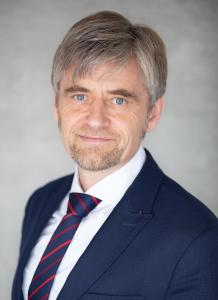A True Greek Tragedy – A German Perspective on the European Financial Challenges - Foundation Office Washington, D.C.
Discussion
Details
He is a member of the Bundestag Committee on Foreign Affairs and Chairman of the CDU/CSU group for foreign affairs. Mr. Wellmann was born in the U.S. sector of West Berlin, and half of his family is in the United States, as his grandparents emigrated there in the 1920s. He emphasized his commitment to the transatlantic partnership and reminded the audience that this is based on shared values as well as shared economic interests. In his view, although the United States also looks toward Asia from its Pacific Coast, with some exceptions, most of the countries of Asia do not share these values, despite their economic success. Mr. Wellmann regretted the withdrawal of the U.S. military in Germany and the closure of the American cultural centers that took place in the 1990s. He made a plea for private-sector support for exchange programs. On a recent trip to Chattanooga, Tennessee, he took time out from his visit to the Volkswagen plant to talk with the mayor about high school exchanges, and the importance of getting more young Americans to Germany.
At the time of the fall of the Berlin Wall, there were 400,000 Red Army troops in East Germany. Now, the former members of the Warsaw Pact are true members of the Western alliance. He cited Poland as a stable country that shares Western values and has become a member of NATO. West Germany pumped 1.6 trillion euros into East Germany to renovate its infrastructure.This was done through the Solidarity Tax. Twenty years later, there are discussions about easing this tax burden. In support of the integration of the new states in the East, Germany also pumped some 20 billion euros into the EU. He noted that Germany has been criticized for not doing enough to rescue the euro. However, while the TARP came to 3.5 percent of the U.S. GDP, Germany is contributing more than 10 percent of its GDP toward the rescue plan.
Greece was initially promised 110 billion euros, and the German taxpayers were told that this was a one-time contribution to stability. A year later, another 110 billion had to be requested for Greece. He said Athens has no effective tax collection system, and hundreds of thousands of “dead souls” are receiving pension benefits. Greek industry has not been developed. Greeks produce olive oil and feta cheese, but the Turks can produce more of the same at lower prices.
Mr. Wellmann then posited solutions to the problems in Greece. Advocating a return to the drachma, he said that prices would go down and tourism would increase, as Europeans would once again begin to see Greece as a bargain resort. Private-sector companies would find Greece cheap and attractive for investment. The idea is gaining wider support. The September report of the Troika (the IMF, European Central Bank, and EU Commission) indicates that the Greek debt is actually 450 billion euros. He said there is no bottom to this barrel and the Greeks have no incentive to change their ways.
In discussing responsibility for the Greek crisis, Mr. Wellmann placed it on the shoulders of the Greek Christian Democrats who preceded Prime Minister Papandreou. He said European integration is a political project, not just an economic one. Europeans realized in 1945, after 500 years of warfare, that it was time to change. Germany has nine neighbors; today none is a threat to Germany, nor is Germany a threat to any of the nine. War with France is now unthinkable. Travel in Europe today between Germany and France, or Germany and Poland, is open; the borders are hardly detectable. He said countries of the Caucasus such as Armenia and Azerbaijan are eager to join the EU. All countries that join the Union must share these values. Open, democratic societies are the best protection against war.
In the discussion after his remarks, Mr. Wellmann said Greece should remain in the EU. There are other countries in the EU that are not part of the euro zone. He made the distinction between a currency crisis and a debt crisis, stating that Europe faces a debt crisis only. One of the measures he recommended has already been adopted by Germany: Countries must lower their debt levels. Mr. Wellmann concurred that Greece could learn from other small European countries who have successfully implemented reforms, such as Estonia. Greece represents only 2 percent of the European economy. Leaders across Europe are working together to meet this challenge.



